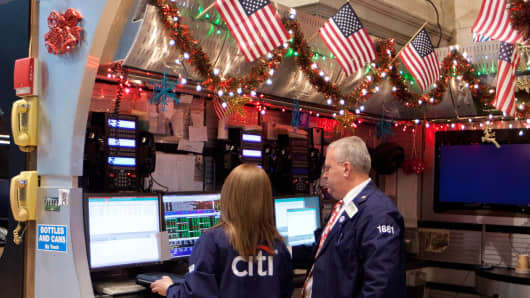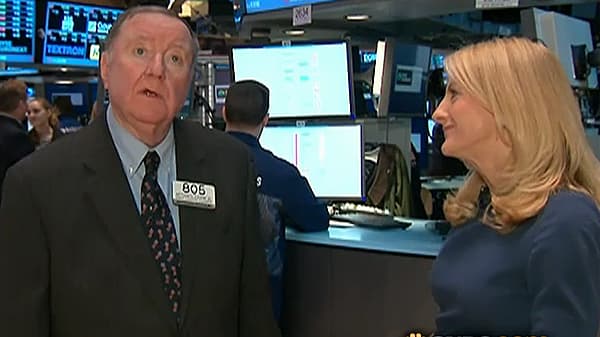Mom-and-pop investors may be coming off the sidelines just as the pros are ready to take a breather, setting up a dicey start for 2013.
Sentiment surveys indicate a frothy level of enthusiasm for a stock market that weathered a series of storms this year, and the Standard & Poor's 500 looks set to close with gains of better than 12 percent.
But when regular investors get excited, bad things often follow.
Retail investors are notoriously late to the market party, buying high and selling low. They stay on the sidelines until the storms pass, and by then it's usually too late to reap the gains of a market rally.
"That's definitely a concern. Sentiment polls are starting to reach high levels of excitement toward equities," said Ryan Detrick, senior technical strategist at Schaeffer's Investment Research in Cincinnati. "From a contrarian point of view, that's clearly piqued my interest."
Among a slew of other strongly bullish indicators, the National Association of Active Investment Managers' survey this week showed a stunning 88 percent allocation to equities, a 33 percentage point increase just since the end of November.
Active managers have been faring poorly for the past few years amid rising correlations across the financial markets. About 40 percent continue to underperform their benchmarks as the year draws to a close.
Their excitement about stocks, then, could give pause about where the market is really heading. (This report in September, The Great Investing Dilemma: 'Always Late to the Party,'" also warned about retail investors coming in late. The market has fallen nearly 4 percent since.)
"We continue to think it prudent for investors to consider taking at least some profits in positions with outsized gains," John Stoltzfus, Oppenheimer's chief market strategist, said in a cautionary note to clients. He recommended that investors hold onto those gains and use them to buy dips in "equities, particularly high-quality, dividend-paying stocks with cyclical exposure that have the potential to produce capital gains."
Indeed, pulling some money off the table as retail investors change course seems to make some sense.
After all, Wall Street's earlier optimism that the "fiscal cliff" negotiations in Washington would yield some palatable deal now seems misplaced, keeping the market in a tight trading range for December and causing a precipitous fall Thursday. (This mid-November report asked: Are Investors Actually Taking the 'Fiscal Cliff' Too Lightly?)





